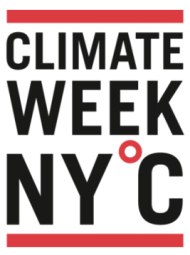 This week, I travelled to Albany for the annual Spring Conference of the Independent Power Producers of New York (“IPPNY”), a trade association that represents generators and others in the electric industry. Executives from numerous electric companies were also there, along with state and federal policy-makers, as well as members of the finance and legal communities. Discussions focused on the theme “Responding to Emerging Energy Policy,” with panels covering the impact of recent policy developments on the electric sector and a keynote address by Cheryl LaFleur, Acting Chair of the Federal Energy Regulatory Commission (“FERC”).
This week, I travelled to Albany for the annual Spring Conference of the Independent Power Producers of New York (“IPPNY”), a trade association that represents generators and others in the electric industry. Executives from numerous electric companies were also there, along with state and federal policy-makers, as well as members of the finance and legal communities. Discussions focused on the theme “Responding to Emerging Energy Policy,” with panels covering the impact of recent policy developments on the electric sector and a keynote address by Cheryl LaFleur, Acting Chair of the Federal Energy Regulatory Commission (“FERC”).
I presented our work on carbon pricing in wholesale electricity markets administered by the New York Independent System Operator (“NYISO”). There was considerable interest in the topic given the recent announcement by NYISO that it is studying ways to incorporate the cost of carbon into wholesale electricity prices. This is seen as important to integrate state policy, aimed at decarbonizing electric generation, into wholesale markets. To date, the state has sought to support low-carbon generation through out-of-market payments, e.g. to nuclear facilities. As the number and amount of such payments have grown, so too have concerns about their potential to distort the market, including by causing uneconomic facilities to remain in operation instead of retiring.
Responding to these concerns, FERC last week convened a technical conference, addressing the interaction of state policy and markets. During the technical conference, NYISO CEO Brad Jones told FERC that he believes markets can be used to achieve state policy goals, e.g. by valuing generators’ carbon emissions. That idea was again discussed at the IPPNY Conference. Sam Newell of the Brattle Group – which, incidentally, is assisting NYISO with its study – discussed the possibility of market operators imposing a carbon charge on generators. The charge, which would be based on each generator’s emissions profile, would be considered by the operator in determining the dispatch order and reflected in the market clearing price.
Introducing this type of carbon charge would require approval from FERC which is responsible for ensuring wholesale electricity rates are just, reasonable, and not unduly preferential or discriminatory. As previously reported on this blog, our research suggests that FERC could grant such approval, provided the carbon charge is structured appropriately with a view to harmonizing state policy and/or improving wholesale market operation. That was welcome news for many electric company executives at the IPPNY Conference.
Most of the conference attendees I spoke to expressed support for a carbon pricing scheme along the lines proposed by NYISO. Some, however, questioned whether such a proposal could move forward in today’s political climate. One former state regulator, for example, argued that the Trump Administration’s opposition to controlling carbon emissions will likely make it impossible for FERC to act. Others responded that, as an independent agency, FERC has traditionally been insulated from political pressure. For her part, Acting FERC Chair Cheryl LaFleur expressed interest in the possibility of pricing carbon in wholesale electricity markets, and called for further discussion of the idea. She went on to state that, in her personal opinion, a carbon pricing scheme was more likely to be successful if developed by a market operator (such as NYISO) and not imposed by FERC. Let’s hope those at NYISO were listening.
Romany Webb is a Research Scholar at Columbia Law School, Adjunct Associate Professor of Climate at Columbia Climate School, and Deputy Director of the Sabin Center for Climate Change Law.



